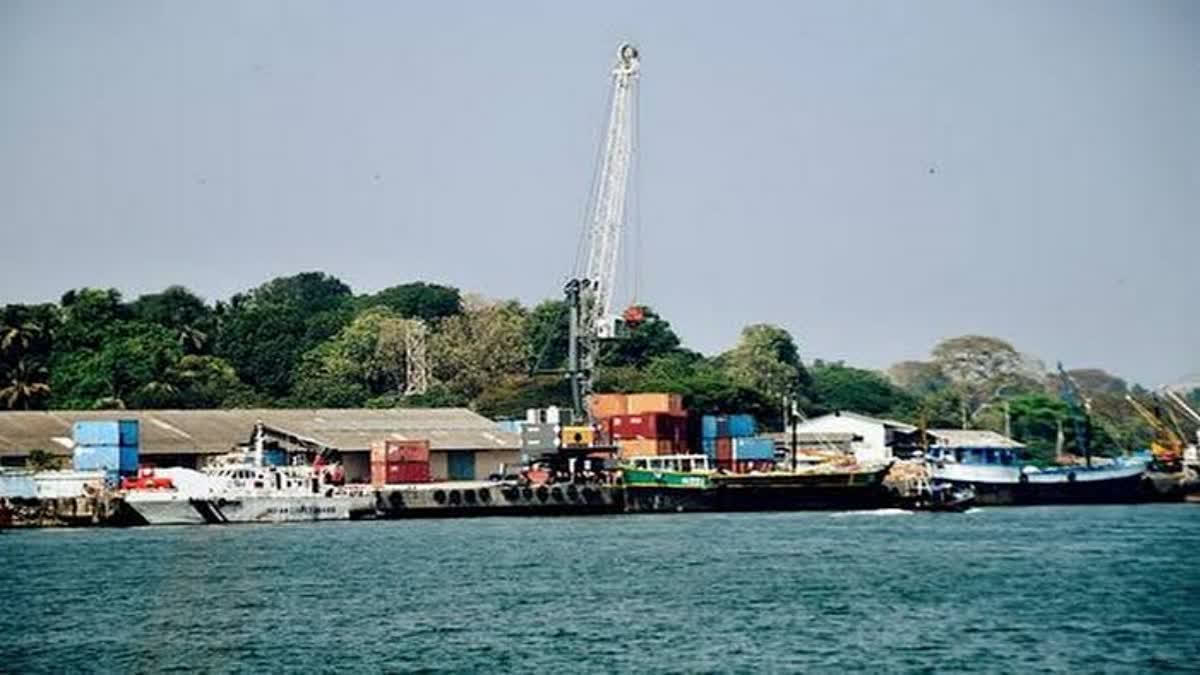Kollam: Widespread protests have swept across Kerala's Kollam district as locals and political parties vehemently oppose the central government’s plans to commence deep sea mining in the coastal region.
Protests have intensified against the central government's decision to complete the tender process for mining minerals in an area of 242 square kilometres in the Kollam coastal region by February 27. The move came after the Geological Survey of India found that there are 745 million tonnes of sea sand deposits suitable for construction purposes off the Kerala coast.
While proponents argue that the project could bolster industrial growth, especially in the construction sector, its potential consequences on the region’s ecosystem and traditional fishing practices have sparked widespread concern.
Experts In Favour, Political Parties Oppose
In a reply to the Opposition, State Fisheries Minister Saji Cherian had said in the Assembly that he would approach the Supreme Court against the move to conduct deep-sea mining in the Kerala coastal region. Congress, the main opposition party in the state had also come out with a 'day-and-night' protest on the issue. However, experts believe that even though mineral sand mining will create some crisis in the traditional fishing sector it would bring great industrial benefits to the construction sector.
What Experts Say?
The National Centre for Earth Studies (NCESS) has done detailed research on the impact of deep-sea mining will affect the coastal zone. Experts who spoke to ETV Bharat on condition of anonymity said that while deep-sea mining opens up huge potential for minerals like silica and manganese, it will also negatively impact traditional fisheries.
A senior researcher clarified that mining in an area of 242 square kilometres will not disrupt the livelihood of fishermen or destroy the marine ecosystem. "When mining is carried out in the sea about 10 kilometres from the coast, the fish in the area will move 6-7 kilometres," he added. He also clarified that trawling fishing also creates a similar impact on the marine ecosystem.
'Silica Will Come, Algae Will Go'
The main attraction for deep-sea mining is the presence of silica. From food to electronics to medicine, silica is present in every aspect of modern man's daily life. Experts say that if mineral sand equivalent to black sand is mined, the minerals can be separated by removing its salty taste. For this, the mined sand must be washed with fresh water, or it must be collected and rained down.
According to experts, during mining, the seawater in an area of mainly 242 square kilometres will be disturbed. This will stop the growth of algae in the area adjacent to it. However, this problem will only occur in the area where the mining is taking place.
'Unfounded Concerns'
Senior researchers have clarified that coastal erosion and tsunami concerns are unfounded. According to them, mining will not destroy the natural systems that prevent tsunamis on the coast. This is because mining is carried out in relatively small areas. Mining cannot affect coastal erosion.
The main reason for coastal erosion is the dykes. Water does not just lie in the sea. There is a current in the sea. The waves will break according to the pressure changes in the current on each coast. The dykes should be built in different ways in each area by understanding these changes. Mining is also possible only by understanding the course of this current, he clarified.



